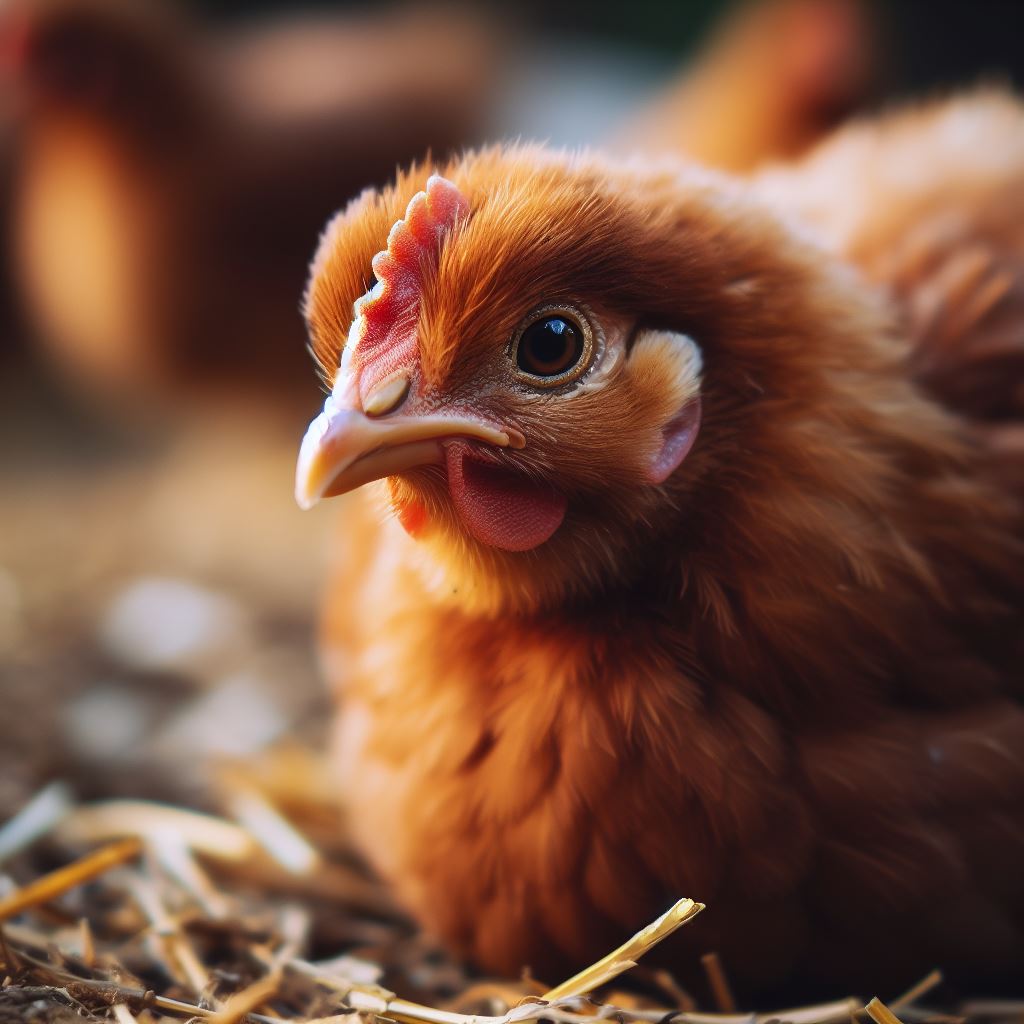Can Chickens Eat Raw Fish? A Friendly Guide to Chicken Diets

Table of content:
- Can Chickens Physically Eat Raw Fish?
- Is Raw Fish Healthy for Chickens?
- What Are the Dangers of Feeding Raw Fish to Chickens?
- How Much Raw Fish Can Chickens Eat Safely?
- What Are the Best Fish for Chickens?
- Should You Cook Fish Before Feeding It?
- Can Chickens Eat Fish Bones, Heads, and Guts?
- What Are Signs of Illness From Raw Fish?
- Final Thoughts
Chickens are omnivores and enjoy a varied diet. Many chicken owners wonder if they can feed their flock raw fish. Raw fish contains beneficial nutrients but also poses some risks. This article explores the pros and cons of feeding chickens raw fish to help you make an informed decision.
Can Chickens Physically Eat Raw Fish?
Chickens are capable of eating raw fish. Their digestive system allows them to consume a wide variety of foods.
A chicken’s mouth, throat, crop, proventriculus, gizzard, small intestine, large intestine, cloaca, and vent allow it to swallow, store, grind up, digest, absorb nutrients from, and excrete raw fish.
Chickens do not have teeth but their beaks can tear pieces of raw fish meat off a whole fish or fish frame. Their throats and crops store and soften food before passing it to the stomach.
Powerful muscles in a chicken’s gizzard grind food, including bones and scales from raw fish. Enzymes in the proventriculus start breaking down proteins.
The small intestine further digests fish proteins, fats, vitamins, and minerals. Nutrients pass into the bloodstream for use around the chicken’s body. Undigested parts move on to the large intestine and are excreted through the cloaca.
So chickens are well equipped to physically consume raw fish without issue. Now let’s explore if raw fish is healthy or risky for chickens.
Is Raw Fish Healthy for Chickens?
Feeding chickens raw fish can provide substantial health benefits when done safely. Here are some of the positives:
- Excellent source of protein – Fish contain all essential amino acids poultry require. Fish protein promotes strong muscle growth and egg production.
- Rich in omega-3 fatty acids – Omega-3s support brain, eye, and heart health in chickens. They also enrich egg yolks.
- Good fats – Fish provide healthy fats that give chickens shiny feathers and supple skin.
- Abundant vitamins and minerals – Fish supply vitamins A, D, E, K and minerals like iodine, selenium, zinc, iron and more. These support immune function and overall wellness.
- Lean and low-calorie – Fish are low in saturated fats and calories compared to red meat. This can help prevent obesity.
- Boosts egg nutrition – Eggs from chickens fed fish may contain more vitamin D, omega-3s, iodine and selenium.
- Better yolk color – Carotenoids in some fish lead to richer orange or even red egg yolks.
So when sourced prudently, raw fish makes an excellent supplemental feed for backyard chickens. It provides complete nutrition chickens need.
What Are the Dangers of Feeding Raw Fish to Chickens?
While nutritious, raw fish also carries some risks chicken owners must consider:
Mercury and Other Contaminants
Certain types of fish contain high levels of mercury, PCBs, and other pollutants. Consuming these contaminants over time can cause mercury poisoning and other health problems in chickens.
Salmon, trout, anchovies, herring, sardines, and other small oily fish tend to be lowest in mercury. Avoid larger, longer-lived predator fish like swordfish, tuna, Chilean sea bass, and mackerel which accumulate more mercury.
Also don’t feed fish from contaminated waters. Choose wild-caught or sustainably raised fish when possible.
Pathogens and Foodborne Illness
Like any raw meat, raw fish may harbor bacteria including salmonella, listeria, E. coli and more. These bacteria can survive in a chicken’s digestive system and cause illness.
Feeding raw fish from questionable sources is particularly risky. Purchase fish from reputable suppliers and markets.
Improper storage also allows pathogenic bacteria to multiply to dangerous levels. Only feed raw fish that has been continuously refrigerated or frozen. Don’t leave fish sitting out.
Imbalanced Nutrition
While healthy in moderation, exclusively feeding high protein, low fiber fish can lead to nutritional issues. Chickens also need grains, greens, veggies, fruit, and insects for balanced nutrition.
A diverse diet prevents protein overload. Vary protein sources and include all food groups.
Rancid Fish Oil
Raw fish containing fish oils can turn rancid quickly at room temperature. Rancid fats can irritate the digestive tract and cause diarrhea or other issues.
Prevent rancidity by freezing fish until ready to feed. Discard any leftover fish within an hour.
Allergic Reactions
Some chickens may be allergic or intolerant to fish protein. This can lead to diarrhea, low egg production, poor weight gain, and lethargy.
Remove fish from the diet of any bird showing negative symptoms. Discuss treatment with an avian veterinarian for birds with fish-related allergies.
So make sure to take precautions when feeding raw fish to avoid potential health hazards.
How Much Raw Fish Can Chickens Eat Safely?
The amount of raw fish that can be safely fed depends on the:
- Type and size of the fish
- Contaminant levels
- Health of the chickens
- Other foods in the diet
As a general guideline, aim to feed no more than 1-2 ounces (28-57g) of fish per standard-sized chicken 2-3 times per week. Adjust amounts based on appetite and observations.
This moderate quantity should provide benefits without risking toxicity.
Larger heritage breed roosters can handle more fish. Smaller chickens like bantams need less.
Laying hens benefit from consistent small amounts to boost nutrition. Limit fish for young chicks under 16 weeks and avoid for the first 6 weeks.
Never let raw fish fully replace chicken feed. Fish should be a supplement not the sole diet.
Rotating different protein sources is also wise. Vary fish with cooked eggs, larvae, bugs, slugs, shrimp, and red meat to add diversity.
Pay attention to droppings – loose or abnormal poop may indicate feeding too much rich fish. Adjust the diet if necessary.
Exercising caution with amounts and frequency is key to safely feeding raw fish.
What Are the Best Fish for Chickens?
Chickens can eat many types of raw fish but some are safer and more nutritious choices.
The best fish for chickens include:
- Anchovies and sardines – Small, oily, low mercury. Whole fish provide calcium from bones.
- Salmon – Rich in omega-3s. Has a mid-level of mercury needing moderate consumption.
- Herring – Similar benefits as sardines and salmon. Choose Atlantic herring which is lower in mercury.
- Mackerel – Omega-3s and other nutrients. Eat in moderation due to mercury concerns.
- Cod, haddock, pollock, sole, tilapia – Versatile white fish low in mercury. Excellent source of protein and B vitamins. Easy to cut into chunks.
- Shellfish like shrimp, crab, crayfish – Contain calcium, iodine, and antioxidants. Cooked is safer.
- Small tuna like skipjack – Has more mercury than salmon but less than large tuna. Limit intake.
The fish listed above provide an optimal balance of protein, healthy fats and nutrients with lower risks.
Avoid large, long-lived predator fish high in mercury like swordfish, marlin, shark, tilefish, and bigeye or bluefin tuna.
Should You Cook Fish Before Feeding It?
Many chicken keepers wonder if raw fish should be cooked first to kill bacteria.
Cooking fish before feeding reduces the risk of salmonella and other pathogens. However, cooking also destroys beneficial omega-3s and other heat-sensitive nutrients.
If the source is high-quality and the fish is very fresh, raw is more nutritious. Freezing for at least 7 days also kills parasites.
For cooking, baking, smoking, or poaching is healthier than frying in oil. But any cooking depletes nutritional value.
If feeding cooked fish, increase the amount to offset the lost omega-3s chickens would get from raw.
Ultimately both raw and cooked fish can be fed safely as long as basic precautions are followed.
Can Chickens Eat Fish Bones, Heads, and Guts?
Chickens can eat whole raw fish including the bones, head, guts, and other parts. Their strong gizzard will grind everything up just fine.
In fact, bones from small fish like anchovies provide calcium for egg shell strength. Fish heads and guts add important fatty acids and nutrients.
The main caution with parts is palatability. Some chickens may not like the taste and texture of fish guts or heads. Offer the frame and entrails separate from flesh to see if your flock will eat them.
Discard any uneaten parts within an hour since they spoil rapidly.
So while chickens can eat an entire fish, their preferences may vary. Try different parts separately.
What Are Signs of Illness From Raw Fish?
Be alert for symptoms of illness when introducing new foods like raw fish:
- Diarrhea or abnormal droppings
- Lack of appetite, lethargy
- Weight loss
- Low egg production
- Feather, skin, or vent issues
- Gas, vomiting, crops not emptying
Severe bacterial infections may even cause sudden death.
Immediately stop feeding fish if any bird seems under the weather. Have sick chickens examined by an avian vet and treat as needed.
Once recovered, reintroduce fish cautiously at lower amounts to test tolerance.
Careful observation helps avoid long-term issues when experimenting with novel protein sources.
Final Thoughts
Can chickens eat raw fish? Yes, when sourced responsibly and fed in moderation. Small oily fish like sardines provide a nutritious protein boost a few times a week. Avoid large predatory fish high in mercury and other contaminants. Feed no more than 1-2 ounces per standard chicken per feeding. Cook or freeze fish to reduce pathogen risks. Discontinue use if adverse reactions occur. Raw fish can enhance nutrition but requires care when introducing to backyard chickens. Follow best practices and your flock can benefit from this healthy supplemental feed.
Welcome. I’m Adreena Shanum, the proud owner of this website, and I am incredibly passionate about animals, especially poultry. I founded adreenapets.com as a labor of love, stemming from my desire to share my knowledge and experiences with poultry enthusiasts worldwide.




